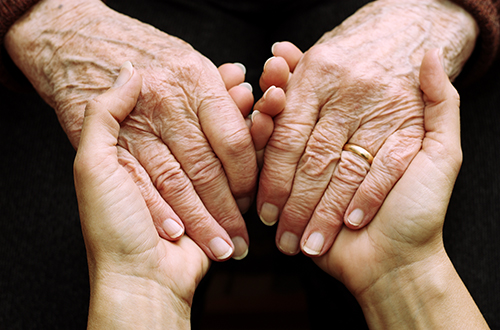#content#
Only 56% of applications are accepted, and less than half are finally helped
05 feb. 2015OCU has conducted a survey of people in situations of special needs, their families and their caregivers in order to know what their current situation in Spain is like and the results do not provide a very optimistic picture. As revealed by the answers given by more than 850 respondents and data from the administration itself, the situation of dependents and their families has worsened especially after the adoption of the Law on Measures to Ensure Budget Stability in 2012. Almost 20% of people with special needs consider that they are not well attended to and 34% believe that the attention given could be better.
Today half of these people with special needs are still not receiving the aid which should be provided under the Special Needs Law passed in 2006; aid which, moreover, is paid for in part by the disabled person through a system of co-payment that varies between 15% and 90%. According to our survey data, 41% of people with the highest level of special needs do not receive any help, nor do 51% of the next level of special needs or 60% of people with moderate special needs.
As noted by those affected, only 10% of them have sufficient financial security not to not need any help from the government, which means that many thousands of people are affected by this badly functioning system of state aid. The figures from the administration itself make compelling reading. Only 56% of applications are accepted, of which only 45% are attended to after a long waiting period that can even extend to more than two years.
The harm caused by budget cuts is suffered in this case equally by the person with special needs as well as their families. In the first case they have seen the amount they receive go down by 15%. In the case of the latter, the removal of the exemption from social security contributions that relatives who were dedicated to looking after family members could apply for has meant that 90% of carers have had to sign off from the system. Added to this is the delay in the application of the calendar for assistance for new people with moderate special needs and a tightening of the conditions for recognition as having the highest level of special needs.
However, as revealed by the OCU survey, despite the cuts in aid to family caregivers, they still represent the mainstay of people with special needs, given that more than 70% live with relatives, compared with 13% living alone, 12% in a care home and 4% who live only with a caregiver. In this situation, those involved must adapt as well as they can; 21% of family members have had to stop work or reduce their hours and 14% have moved into the home of the family member in order to assist them. Similarly, 14% of people with special needs have had to leave their own home to go to live with a family member.
For more information (media) Eva Jimenez Tel. 917 226 061 prensa@ocu.org

